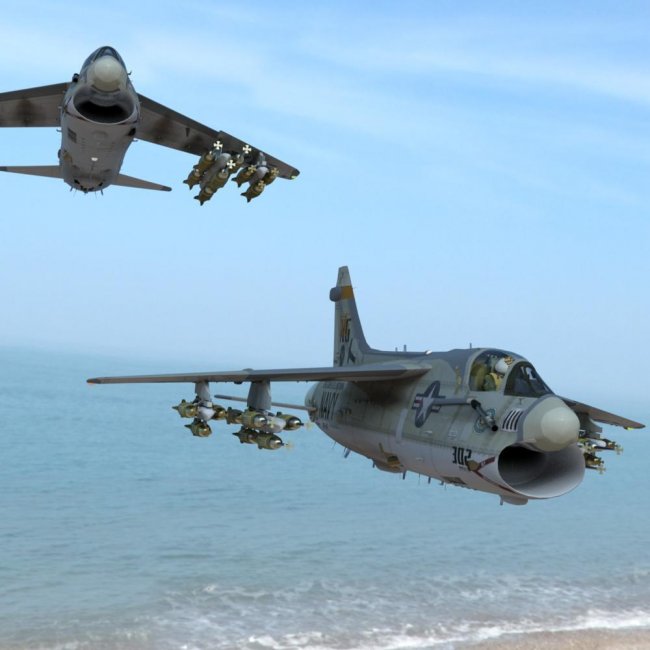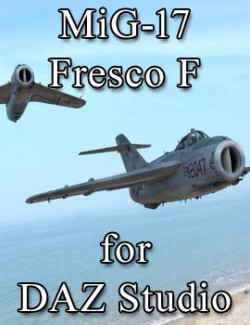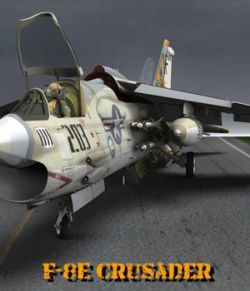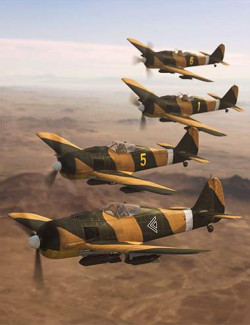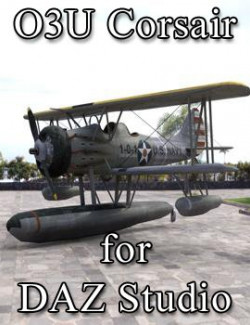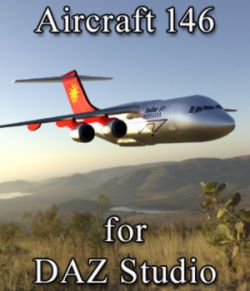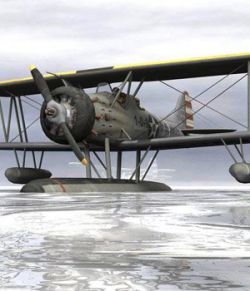In 1962, the United States Navy began preliminary work on VAX (Heavier-than-air, Attack, Experimental), a replacement for the A-4 Skyhawk with greater range and payload. Particular emphasis was placed on accurate delivery of weapons to reduce the cost per target. The requirements were finalized in 1963, announcing the VAL (Heavier-than-air, Attack, Light) competition.
To minimize costs, all proposals had to be based on existing designs. Vought, Douglas Aircraft, Grumman and North American Aviation responded. The Vought proposal was based on the successful Vought F-8 Crusader fighter, having a similar configuration, but shorter and more stubby, with a rounded nose. It was selected as the winner on 11 February 1964, and on 19 March the company received a contract for the initial batch of aircraft, designated A-7. In 1965, the aircraft received the popular name Corsair II, after Vought's highly successful Vought F4U Corsair of World War II. (There was also a Vought O2U Corsair biplane scout and observation aircraft in the 1920s.)
Compared to the F-8 fighter, the A-7 had a shorter, broader fuselage. The wing had a longer span, and the unique, variable incidence feature of the F-8 wing was omitted. To achieve the required range, the A-7 was powered by a Pratt & Whitney TF30-P-6 turbofan producing 11,345 lbf (50.5 kN) of thrust, the same innovative combat turbofan produced for the F-111 and early F-14 Tomcats, but without the afterburner needed for supersonic speeds.
Product Features:
DAZ Studio props (dsf, duf/ png):
* F4B Phantom aircraft, at 59,239 polygons
* Over 50 Points of Articulation on the main figure!
- Moving Flaps, Ailerons, Spoilers, Rudder, Stabilator, Speed Brakes, Opening Landing Gear Doors, Raising and Lowering Gear, Spin-able Wheels, Steer-able Nose Gear, Opening Canopies, Deployable Slats, Folding Wings, Deployable Tail Hook, Deployable Emergency Drag Chute, Fully Functional Cockpit Flight Controls, and Working Ejection Seat...
- Numerous Pose Control dials for ease of control from one main location, including dials for various basic flight maneuvers. The weapons sets also have Pose Control dials for ease of use in images and animation!
- Nose Radome opens to reveal the AN/APQ Radar Set.
Poses:
* InFlight:
- Level flight with the landing gear closed
* Landed
- Angled on the ground with the landing gear open
Accessories and Armaments:
DAZ Studio props (dsf, duf/ png):
* Fuselage Weapons
- Aim-9 Sidewinders
* Inner-Wing Pylons
- 250lb FE Bombs
- 250lb GP Bombs
- 410Gal Drop Tanks
- 500lb GP Bombs
* Mid-Wing Pylons
- 250lb FE Bombs
- 250lb GP Bombs
- AGM-65 Mavericks
* Outer-Wing Pylons
- 250lb FE Bombs
- 250lb GP Bombs
- AGM-65 Mavericks
- LAU-3 Rockets
* Props:
- Air Crew: low-poly, un-rigged pilot figure.
- Boarding Ladders
- FOD Covers (engine and air intake covers)
These sets are broken down by mounting location so that each set can be properly mix and matched with the others, allowing a total combination of over 100 variations of weapons loads that can be loaded based on mission requirements!
Textures:
* One set of texture maps with corresponding bump maps, at 3500x1800 pixels.
* All of the materials use Iray shaders.
All sales images rendered in DAZ Studio with an HDRI skydome environment.
Designed for use in DAZ Studio 4.9 and above with Iray. Not recommended for use in other software programs.
Original model by, and acquired from Chris Schell, and now owned by VanishingPoint.
Software: DAZ Studio 4 With IRAY
